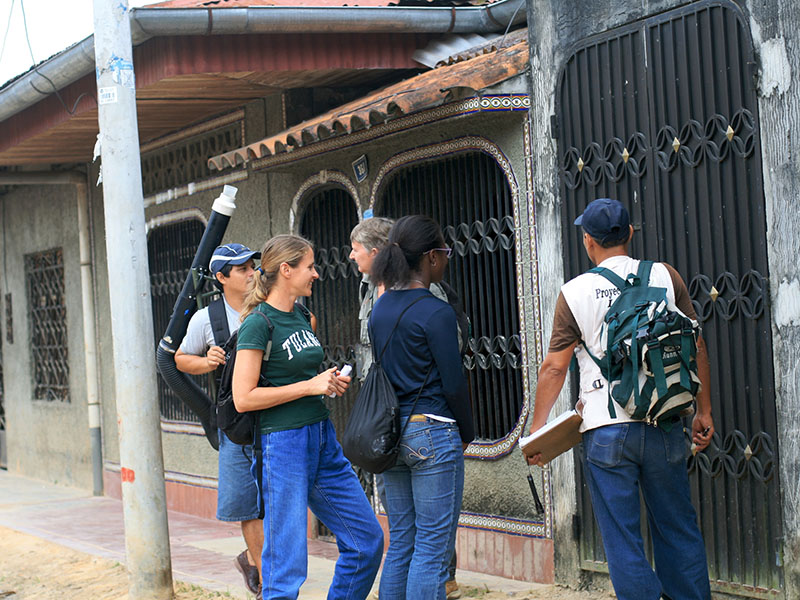

International Health and Sustainable Development
To improve the health and well-being of vulnerable populations around the world by eliminating health inequities and promoting human rights and social justice for all persons by being a global leader and partner in capacity strengthening, research, service, and advocacy.
About the Department
International health and development has played a vital role in achieving the school’s mission and is a critical part of Tulane’s identity. The international health and development program began in the 1970’s as an interdisciplinary program, and in 1993, the Department of International Health and Development was formally established and first admitted students into its master’s and doctoral programs. Department and school faculty partner with ministries of health, community organizations, and other non-government organizations to address the pressing health problems that impact populations globally. We have long and deep connections in the countries in which we work, with a strong focus on local capacity building.
Vision
To achieve a world in which everyone can live healthy, fulfilling lives, regardless of place and circumstance.
Mission
To improve the health and well-being of vulnerable populations around the world by eliminating health inequities and promoting human rights and social justice for all persons. We aim to achieve our mission by being a global leader and partner in:
- Capacity strengthening: educate and train the next generation of public health professionals, and strengthen the capacity of institutions, at home and abroad, through innovative education and technical assistance programs, in order to improve the effectiveness and sustainability of health programs and policies.
- Research: expand knowledge and understanding of the complex causes of health inequities, vulnerability, and resilience and provide evidence that can be used to improve the design, implementation, and evaluation of effective and sustainable programs and policies.
- Service: mobilize our expertise and engage with communities and institutions at home and abroad to advance the goals of our professions and institutions towards health equity and social justice.
- Advocate for evidence-based policies and programs to accelerate progress towards health equity, promote social justice, and support the sustainable development of communities around the world.
David Hotchkiss, PhD
Chair and Professor
